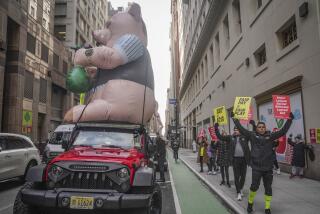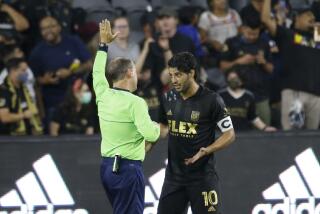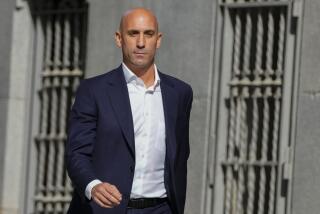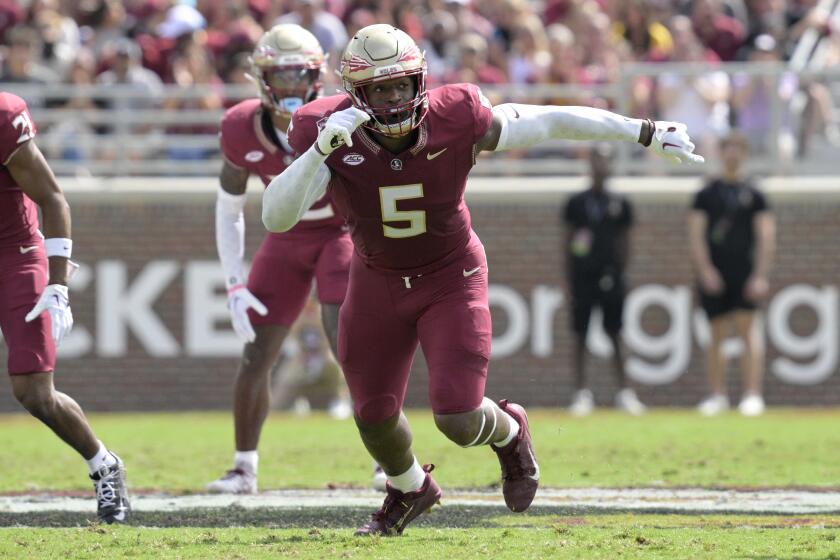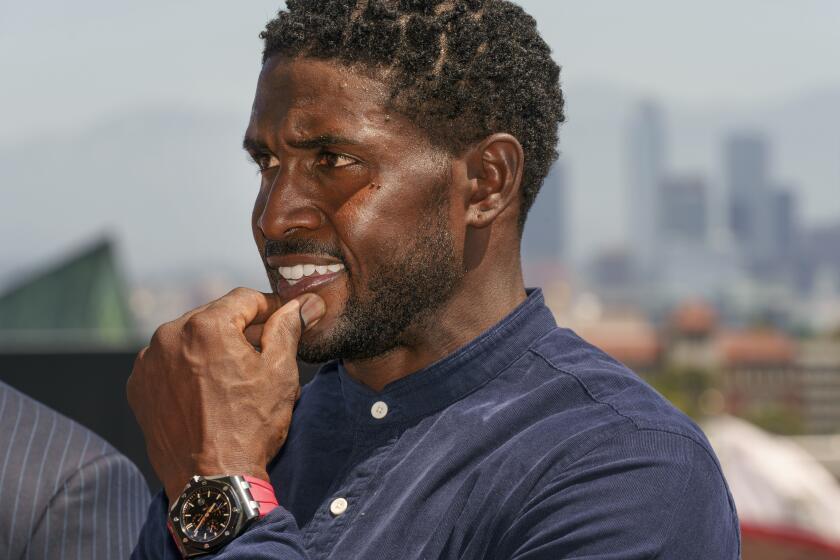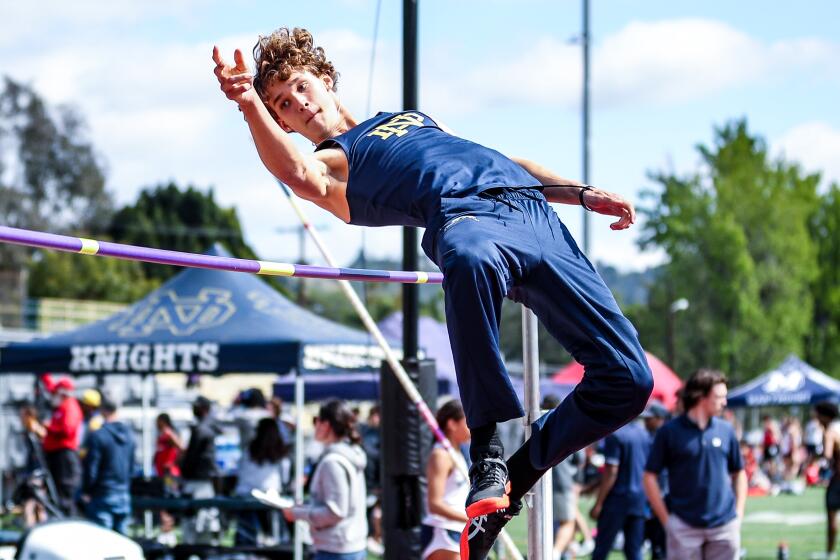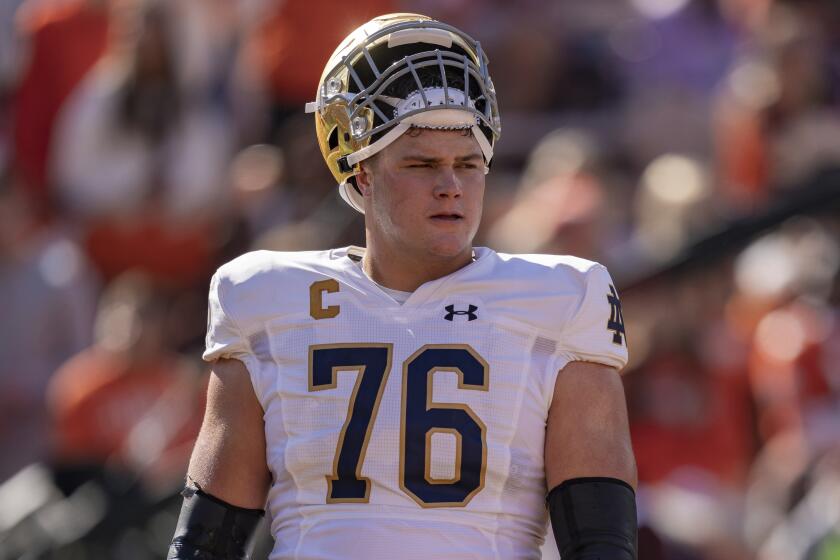FIFA corruption story won’t go away
International soccer’s ongoing ethics scandal has moved to American shores, and not without some controversy.
On Tuesday, FIFA, world soccer’s governing body, began its investigation into the alleged bribery of Caribbean soccer officials by opening a three-day hearing in Miami.
The latter incident led to the provisional suspension of two FIFA executive committee members, Jack Warner of Trinidad and Tobago and Mohamed bin Hammam of Qatar, the presidents of soccer’s North and Central American and Caribbean (CONCACAF) and Asian regions, respectively.
The FIFA ethics committee has requested the heads of all 25 Caribbean football associations to appear in Florida for interviews on whether as much as $40,000 per person in cash was offered to them and accepted by some at a meeting in Port of Spain, Trinidad, in May.
The ethics committee viewed the money as a possible payment for votes by Bin Hammam, who was running against Joseph “Sepp” Blatter for the FIFA presidency before he withdrew from the race. Warner facilitated the May meeting.
The probe is being headed up by ethics committee member Robert Torres, a judge from Guam, assisted by officials from the Freeh Group International, a consulting and investigative agency founded by former FBI director Louis J. Freeh.
According to a letter sent to the 25 Caribbean officials and obtained by Britain’s Sky News, those invited to the Miami hearing were under no obligation to attend but were told to “be advised that the FIFA ethics committee may draw a negative inference in the event that you . . . do not attend the meeting requested.”
Even with that blunt warning, as many as 18 of the 25 officials invited to attend the hearing indicated that they would not comply.
Britain’s Press Assn. reported that one unidentified Caribbean association went so far as to complain in a letter to Blatter that the investigation itself is “tainted and biased and clearly has a U.S.-driven agenda.”
The letter asked for Freeh’s group to be replaced and for the hearing to be held on neutral ground. The Caribbean soccer association pointed out that former President Bill Clinton had worked on behalf of the U.S. 2022 World Cup bid — which it lost to Bin Hammam’s Qatar — and that Freeh was FBI director during the Clinton administration. The soccer association also noted that FIFA executive committee member Chuck Blazer, who blew the whistle on the alleged bribery, is American.
On Tuesday, Blazer scoffed at this. “To say there is an American conspiracy is nonsense,” he said. “The only things that were American in this were the $100 bills.”
Meanwhile, CONCACAF has its third president in as many weeks.
After Warner’s suspension, Lisle Austin on Barbados was elevated to Warner’s position as acting president and almost immediately fired Blazer as CONCACAF general secretary, saying his whistle-blowing was “inexcusable and a gross misconduct of duty and judgment.”
Austin also called for a “forensic audit” of CONCACAF’s finances over the last five years.
Blazer’s response was that Austin had misunderstood the limits of his power.
Ultimately, CONCACAF’s executive committee agreed and dismissed Austin, replacing him with Alfredo Hawit of Honduras on an interim basis, and asking FIFA to suspend Austin from all soccer activity worldwide pending a July 13 hearing.
Then there is Warner, who over the weekend promised to release the contents of an email he had sent to Blatter following the Port of Spain meeting at which the money was supposed to have changed hands.
“The email I sent to Mr. Blatter is crystal clear and it tells you what happened at the meeting and, of course, what transpired,” Warner said Saturday.
By Sunday, however, he had changed his mind.
“The best legal advice received at home and abroad has suggested that I do not do so at this time,” he explained to supporters in Trinidad.
grahame.jones@latimes.com
More to Read
Get our high school sports newsletter
Prep Rally is devoted to the SoCal high school sports experience, bringing you scores, stories and a behind-the-scenes look at what makes prep sports so popular.
You may occasionally receive promotional content from the Los Angeles Times.
